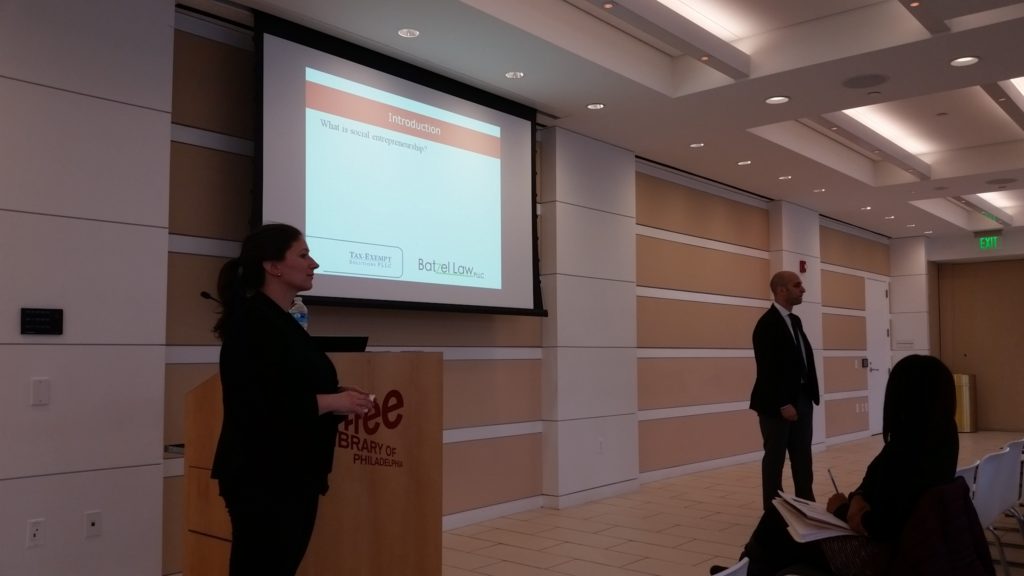The social impact community needs more entry points like this
 May 20, 2016
Category: Event, Featured, Medium, Method
May 20, 2016
Category: Event, Featured, Medium, Method
Social impact is incredibly wonky — so wonky that there’s an Ivy League institution dedicated to studying it right here in Philadelphia.
Practitioners are becoming more methodical, more diligent and more intentional about the way they’re delivering services and products, keen on measuring the social and fiscal results they expect in return.
But as we’re figuring out how to make doing good more efficient and effective, it’s important to make sure that knowledge is dispersed equitably. Walk up to the next stranger you see and ask for their take on the level of sacrifice impact investing makes in trading fiscal gain for social return.
Conversations like that, riddled with scholastic terminology and concepts, are happening in philanthropy, in venture capital, in entrepreneurship and in government.
But those conversations are few and far between (if existent at all) among the general public. Those who are interested in the burgeoning and evolving social impact space and want to get involved need an access point before they can participate in and add perspective to those conversations.
The Free Library’s new Business Resource Innovation Center (BRIC), dedicated to fostering the growth of social entrepreneurship, can be that access point. And they proved it at their first event, “A Social Entrepreneur’s Guide to Business Formation.”
This might not have been an engaging event for foundation execs or academics, but it was likely eye-opening for some attendees who have been interested in social entrepreneurship, but didn’t know where to start.
The two lawyers who hosted the event, Tax-Exempt Solutions, PLLC founder Benjamin Takis and Batzel Law, PLLC founder Heather Batzel, kicked off the event by defining social entrepreneurship (something we felt the need to ask local leaders at our latest stakeholders meeting).
“Everyone has a different way of thinking about this definition,” Takis said. “We need to get more precise.”
Takis offered up three aspects of social entrepreneurship:
- The intersection of self-interest and social interest — People no longer want to see business and philanthropy as two mutually exclusive sectors. Social entrepreneurship bridges that gap.
- New ways to address social issues — Increasingly through technology and data-driven, evidence-based approaches.
- New ways to raise money — Think: Crowdfunding. Plus, impact investing in the venture capital world and venture philanthropy in the — well, philanthropy world.
Those three points lead to three questions that will determine what kind of social entrepreneur you might be.
- What is your self-interest? It’s best to be open about what you want out of social entrepreneurship for yourself. Money? Happiness? Control?
- How will you address social interest? Are you on the ground delivering impact yourself, or are you helping those who are already working on the ground with supplemental services?
- How will you raise money? Look carefully. Grants, loans, venture capital and crowdfunding all come with their own forms of constraints.
Takis and Batzel finished off the event by defining constraints and privileges allowed by nonprofit, for-profit and benefit corporation models. But the best piece of advice was given by Takis mid-way through the presentation.
Before jumping into social entrepreneurship gung-ho, consider launching a mission-less business or volunteering for your favorite nonprofit, he said. Social entrepreneurship is not for everyone. But if you’re serious about launching a social enterprise, a nonprofit (don’t!) or a social impact project, do it in your spare time first.
Takis said he knows firsthand.
“I made $500 on my first day and then didn’t have any work for three months,” he said. “Do this while you can, while still having a steady source of income. Build credibility, get some income, and if it grows, eventually do it full-time.”
Trending News










